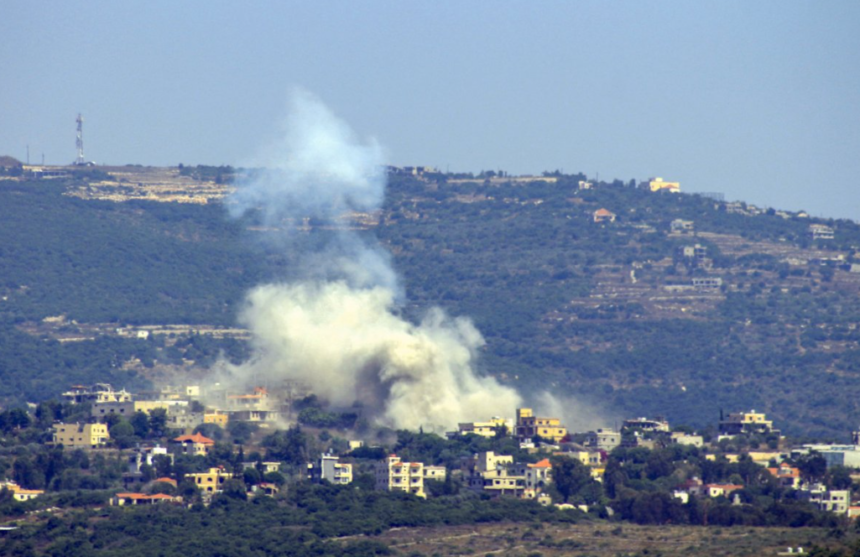Officials from Iran and Israel have been issuing more warnings to one other as tensions in the Middle East and beyond grow about the potential for a wider confrontation to break out as a result of the ongoing fighting in the Gaza Strip and the growing border conflicts between Israel and Lebanon.
An Israel Defense Forces (IDF) spokeswoman told Newsweek on Sunday, “The IDF is prepared for a variety of security scenarios in all areas, and will continue to protect the State of Israel from the various threats.”
The remarks were made two days after one of the Islamic Republic’s most serious alerts to date on the worsening security situation was shared with Newsweek by the Iranian Mission to the United Nations (U.N.) and published on X, the former Twitter platform.
“Albeit Iran deems as psychological warfare the Zionist regime’s propaganda about intending to attack Lebanon, should it embark on full-scale military aggression, an obliterating war will ensue,” the Iranian Mission stated on Friday. “All options, incl. the full involvement of all Resistance Fronts, are on the table.”
With certain elements of the Iran-aligned “Axis of Resistance” joining the conflict from outside, the bloodiest and longest-lasting conflict in Gaza history, which began between Israel and the Palestinian Hamas organization last October, has taken on a regional character. The Hezbollah movement in Lebanon is one of these closest and most potent groups.
Since the start of the conflict in Gaza, Israel and Hezbollah have clashed frequently. However, the cross-border conflict has gained more attention due to the possibility of a third Israel-Lebanon war, which observers warn could be even more disastrous than the current Israel-Hamas conflict.
Apart from Hezbollah, other “Axis of Resistance” groups who assert regular attacks on Israel include the Houthi movement in Yemen and the Islamic Resistance in Iraq, which is a coalition of militias located in both countries.
These organizations have also demanded that the scope of operations be increased to include Jordan, a vital ally of the United States that borders Israel and the West Bank, which is also home to Hamas and other armed Palestinian factions who have been stepping up their activity.
Israeli Prime Minister Benjamin Netanyahu described what he believed to be the regional front lines of a larger Israel-Iran conflict in remarks given on Thursday to a military brass group.
“Iran is fighting us on a seven-front war: obviously, Hamas, Hezbollah, Houthis, the militias in Iraq and Syria, Judea and Samaria, the West Bank, Iran itself,” Netanyahu stated. “They want to get rid of Jordan. Their objective is to launch a coordinated missile barrage together with a joint ground attack from many fronts.”
“The first requirement is to cut that hand—Hamas,” he said. There won’t be those who mistreat us in this way. We face a protracted war. We will get rid of them, but I don’t think it will take that long.”
In addition to announcing new operations within Gaza, the Israeli military claimed to have carried out multiple strikes in Lebanon on Sunday. The strikes were aimed at “Hezbollah operational infrastructure and military structure in the areas of Taybeh and Rab El Thalathine,” as well as “a military structure in which additional terrorists were operating in the area of Houla.” Additionally, the IDF targeted alleged Hezbollah locations in Kfarkela.
At least four fresh operations, targeting known IDF sites in Metula, Beit Hillel, Biranit, and Yir’on, were claimed by Hezbollah on Sunday.
The assaults were reported to have taken place “in support of our steadfast Palestinian people in the Gaza Strip and in support of their valiant and honorable resistance, and in response to the Israeli enemy’s attacks on steadfast southern villages and safe houses.”
Sheikh Naim Qassem, the deputy secretary-general of Hezbollah, praised the solidarity of the “Axis of Resistance” against Israel and reaffirmed Hezbollah’s constitutional right to fight Israel in a speech on Saturday.
“We are convinced that this resistance must remain, strengthen, continue, prepare plans, work, and determine the appropriate timing for any confrontation,” Qassem stated. “For us, assistance is a preemptive safeguard. Helping us out is both required and obligated. Your assistance is essential to our future.
In the meantime, the White House has persisted in expressing grave concerns about a possible escalation in hostilities between Israel and Hezbollah.
John Kirby, the communications adviser for the National Security Council, told reporters on Wednesday that “what we’re trying to do is prevent a second front from opening up.” “We’re trying to prevent an escalation of this conflict that certainly would put the people of Israel and of Lebanon at greater physical risk than the risk that is already being incurred by them, particularly those that live near the Blue Line.”
He continued: “We want to prevent that outcome, which is why we have been working so hard diplomatically and intensely, thus so, to prevent a second front from opening up and an expansion of this conflict.”














